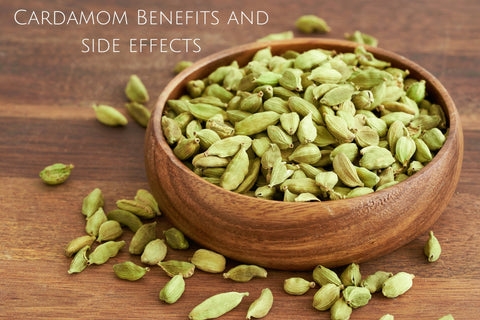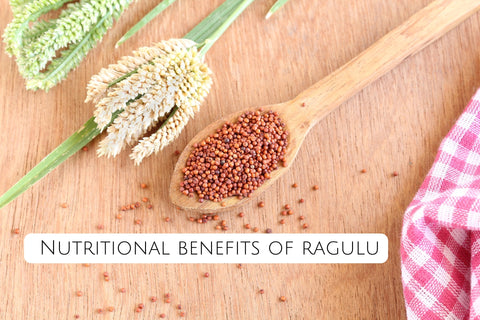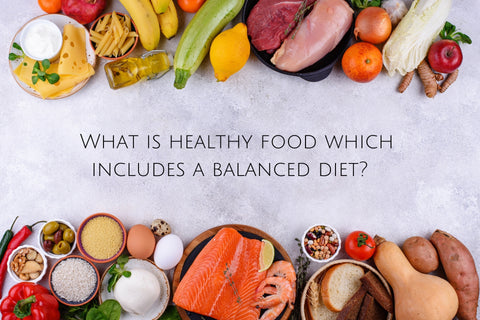Cardamom (or cardamon) is a popular spice known for its strong, unique flavor and aromatic qualities. It comes from the seeds of several plants in the genera Elettaria and Amomum in the ginger family (Zingiberaceae). Cardamom is native to the Indian subcontinent and is widely used in Indian, Middle Eastern, and Scandinavian cuisines, as well as in various baked goods and beverages.
There are two main types of cardamom:
Green Cardamom (Elettaria cardamomum):
Green cardamom pods are small, light green, and spindle-shaped. They are often used whole or ground. Green cardamom has a sweet, floral, and slightly spicy flavor and is commonly found in desserts, chai tea, and curry dishes.
Black Cardamom (Amomum subulatum):
Black cardamom pods are larger and brown or black in color. They have a smoky, earthy flavor and are often used in savory dishes, such as stews, soups, and rice pilafs. Black cardamom is especially popular in Indian cuisine.
Both types of cardamom are used to add flavor and aroma to a wide range of dishes, and they are also used in various spice blends like garam masala. Cardamom is known for its potential health benefits, including digestive aid and antioxidant properties. It's also used in traditional medicine for its supposed medicinal properties.
Cardamom is available in various forms, including whole pods, seeds, and ground powder, making it versatile for different culinary applications.
Health benefits of cardamom
Cardamom is not only a versatile and flavorful spice but also has several potential health benefits. However, it's important to note that while cardamom can be a healthy addition to your diet, it should not be relied upon as a sole remedy for medical conditions. Here are some of the health benefits associated with cardamom:
Digestive Aid: 
Cardamom is often used as a digestive aid. It can help alleviate symptoms of indigestion, bloating, gas, and heartburn. Chewing on whole cardamom pods or drinking cardamom-infused tea may promote better digestion.
Anti-Inflammatory Properties:
Cardamom consists compounds with anti-inflammatory properties, which may help reduce inflammation in the body. Chronic inflammation is associated with various health problems, so including cardamom in your diet may have a positive impact.
Antioxidant Rich:
Cardamom is a good source of antioxidants, which can help protect your cells from damage caused by free radicals. Antioxidants play a role in reducing the risk of chronic diseases and aging.
Oral Health:
Chewing on cardamom seeds or pods can help freshen your breath and improve oral health. Some chewing gums and mouthwashes also contain cardamom for its natural breath-freshening properties.
Blood Pressure:
Some studies propose that cardamom may help lower blood pressure. The antioxidants and diuretic properties of cardamom may contribute to this effect, although more research is needed to confirm its effectiveness.
Respiratory Health:
In traditional medicine, cardamom has been used to relieve respiratory issues such as coughs and asthma. Its aromatic compounds may help improve airflow and reduce symptoms.
Antimicrobial Properties:
Cardamom contains natural compounds with antimicrobial properties that may help fight bacterial and fungal infections. However, it should not be used as a substitute for medical treatment in serious infections.
Weight Management:
Some animal studies have suggested that cardamom may have a positive impact on weight management by improving metabolism and reducing appetite. Human studies are needed to confirm these effects.
Mood Enhancement:
The aroma of cardamom is often used in aromatherapy to promote a sense of well-being and relaxation. It can be added to scented oils and diffused in the air for its calming effects.
How to use cardamom?
Cardamom is a versatile spice that can be used in a variety of culinary applications to add flavor and aroma to dishes. Here are some common ways to use cardamom:
Whole Cardamom Pods:
- Infused in Beverages: Cardamom pods can be added to tea, coffee, or hot chocolate to infuse a warm, aromatic flavor. Simply crush the pods slightly before adding them to the liquid.
- Rice and Grain Dishes: Add whole cardamom pods to rice or grain dishes like pilafs or biryanis to impart a subtle, fragrant flavor.
- Stews and Soups: Toss a few whole cardamom pods into stews or soups for a warm and spicy note.
Ground Cardamom:
- Baking: Ground cardamom is often used in baking recipes. It pairs well with cakes, cookies, bread, and pastries. It's especially popular in Scandinavian baked goods.
- Spice Blends: Ground cardamom is a key ingredient in spice blends like garam masala and curry powder. It adds depth of flavor and complexity to these mixtures.
- Desserts: Use ground cardamom to flavor desserts like rice pudding, ice cream, or custards. It complements sweet dishes beautifully.
Cardamom Seeds:
- Chewing: Cardamom seeds can be chewed for their breath-freshening properties. Simply remove the seeds from the pods and chew on them after meals.
- Spice Mixes: Crush cardamom seeds and add them to spice rubs or marinades for meat and poultry dishes.
- Pickling: Cardamom seeds can be used to add flavor to homemade pickles and preserves.
Cardamom Powder:
- Spice Blends: Ground cardamom is a common ingredient in various spice blends used in different cuisines. Mix it with other spices like cinnamon, cloves, and nutmeg for a flavorful combination.
- Smoothies and Shakes: Add a pinch of cardamom powder to smoothies, milkshakes, or yogurt for a unique twist on your favorite beverages.
- Oatmeal and Porridge: Sprinkle cardamom powder on your morning oatmeal or porridge for added flavor.
Cardamom Extract or Oil:
- Flavored Beverages: A drop or two of cardamom extract or oil can be added to beverages like cocktails or mocktails for a burst of flavor.
- Baking: Cardamom extract or oil can be used in baking recipes that call for a concentrated cardamom flavor.
side effects of cardamom:
cardamom is generally safe for most people to consume in food amounts.The following are some of the potential side effects of cardamom:
- Gastrointestinal upset
- Allergic reactions
- High blood pressure and rapid heartbeat
- Interactions with medications
Conclusion:
In conclusion, cardamom is a versatile and aromatic spice that adds a unique flavor and fragrance to a wide range of dishes and beverages. It is commonly used in culinary traditions around the world, from Indian curries to Scandinavian baked goods.
Incorporating cardamom into your cooking can elevate the flavor profile of your dishes and introduce a pleasant aroma to your culinary creations. Whether you choose to use whole pods, ground powder, or seeds, cardamom is a delightful spice that can enhance both savory and sweet recipes, making it a valuable addition to your kitchen pantry.




Comments (0)
There are no comments for this article. Be the first one to leave a message!